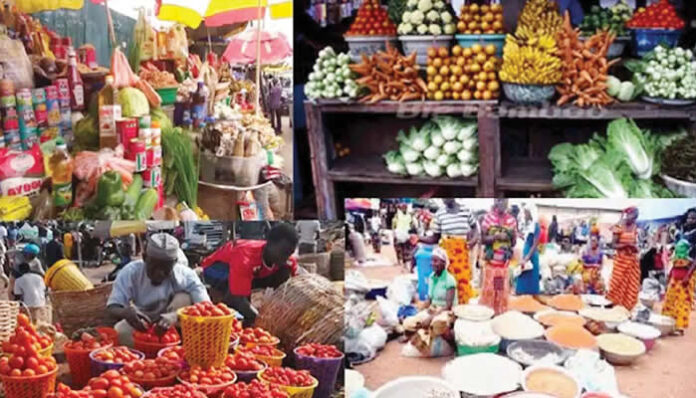Food costs in Abuja registered inconsistent trends in September 2025; some necessities grew less expensive while others soared.
A market survey conducted at Wuse, Kubwa, Nyanya, and Dutse Alhaji revealed changing dynamics that still define household spending.
A bag of onions, a mainstay in most Nigerian homes, soared drastically to between N55,000 and N60,000 from roughly N45,000 in July. Onions peaked at N60,000 at the Orange Market, hence many households worried about budgetary constraints.
Also rising were the prices of goat meat, with a lap costing N7,500 to N13,500 as opposed to N6,800–N10,000 in July. Traders blamed this on rising transportation expenses and ongoing instability in agricultural regions.
On the other hand, families found some relief from declining rice, bean, tomato, and yam prices. Two months ago, brown beans were selling at N1,500, compared to over N2,000, and the mudu of white beans decreased to N1,600.
Rice also experienced dramatic falls; foreign rice fell to N2,500 per mudu while clean local rice sold for N1,600. A 50 kg bag of foreign rice. Today, a bag in Nyanya sells for between N58,000 and N63,000, depending on the brand; in July, it was N79,000; now it costs N65,000.
Tomatoes showed the strongest relief. Originally priced at N6,800 in July, a mudu currently trades for N3,000. Yam prices, compared to N2,484 earlier in the year, also fell to about N2,000 per tuber.
The News Chronicle found out that the fall in prices of staples, including rice, beans, yams, and tomatoes, is mostly related to the arrival of fresh harvests. from northern states, whose market supply has grown. Nonetheless, traders caution that seasonal swings and logistics issues might yet produce volatility in the upcoming months.
“Onion prices change quickly; today it is high, tomorrow it may drop. That’s how the market runs, ” Fatimat, an onion seller at Kubwa Village Market, said. Magaji, a tomato merchant at Dutse Alhaji Market, who spoke in Hausa language, said, “The new harvest has really helped; we can now sell tomatoes cheaper, and consumers are buying more.”
But customers claim the total relief is still modest. Although rice and beans are less expensive, onions and meat are still too costly. “By the time you buy everything together, you still spend too much,” said Kehinde, a mother of three at Dei Dei Market.
The National Bureau of Statistics shows that food inflation slowed to 21.87% in August 2025, pointing to a declining trend from last year. Many families in Abuja, though, continue to struggle with the fight to strike a balance between food expenses on a daily basis.



